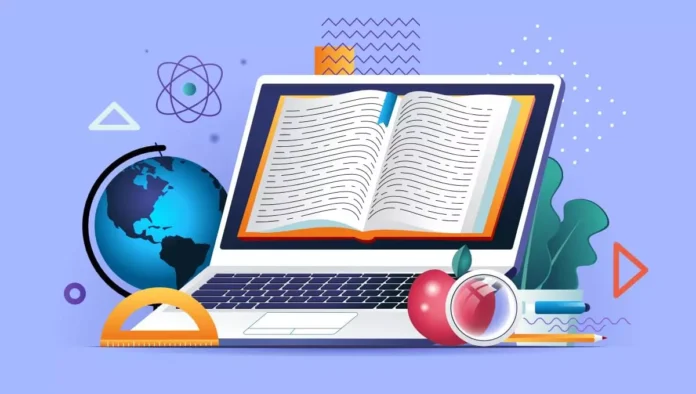Effective Study Habits for Quick Learning

[ad_1]

Effective study habits are crucial for quick learning and academic success.
By adopting these seven key tips, students can enhance their learning efficiency and achieve better results in less time.
1. Create a Study Schedule

Planning and organizing study time is essential for effective online education. A study schedule helps students allocate specific times for studying, ensuring that they cover all necessary material without cramming.
To create a realistic and effective study schedule, begin by assessing the total amount of time available each week and divide it into manageable study sessions. Prioritize subjects based on difficulty and upcoming exams or deadlines.
Incorporate short, frequent study periods rather than long, infrequent sessions to enhance retention and prevent burnout. Additionally, balance study time with breaks and leisure activities to maintain motivation and avoid fatigue.
Regularly reviewing and adjusting the schedule based on progress and changing priorities will keep the study plan effective and aligned with academic goals.
2. Find a Conducive Study Environment
A quiet and comfortable study space is vital for concentration and productivity. An ideal study environment minimizes distractions and maximizes focus, allowing for more efficient learning and better retention of information.
Start by selecting a dedicated study area, free from noise and interruptions, such as a library, a quiet room at home, or even a secluded corner of a café with minimal distractions. The key is to find a place where you can consistently focus without the interference of household activities, conversations, or loud noises.
Ensure the space is well-lit and ergonomically arranged, with a comfortable chair and desk setup that promotes good posture. Proper lighting is crucial to avoid eye strain and maintain alertness, while a good chair and desk setup prevent discomfort and fatigue, allowing you to study for longer periods without physical strain.
Personalize the environment with necessary supplies, like notebooks, pens, and a computer, to reduce the need for unnecessary breaks. Having everything you need within arm’s reach prevents interruptions that can disrupt your study flow.
Keep the study area organized and clutter-free to avoid distractions. A tidy space helps clear your mind and reduces stress, making it easier to focus on your studies. Use organizational tools such as shelves, drawers, and desk organizers to keep your materials in order.
Establishing a consistent study spot can signal to your brain that it’s time to focus, enhancing your ability to concentrate and retain information. Consistency in your study environment creates a routine, making it easier for your brain to switch into study mode and increasing your overall productivity.
3. Utilize Active Learning Techniques

Active learning techniques are more effective than passive learning methods because they engage the brain in higher-order thinking processes.
Active learning involves actively participating in the learning process, making the material more memorable and easier to understand.
Some examples of active learning methods include summarizing information in your own words, teaching the material to someone else, and creating flashcards for quick review.
Engaging in discussions, solving problems, and applying concepts to real-world scenarios also promote active learning.
These techniques require critical thinking and can help solidify your understanding of the subject matter, making it easier to recall information during exams or practical applications.
4. Practice Spaced Repetition
Spaced repetition is a powerful technique that involves reviewing information at increasing intervals to enhance long-term retention.
Instead of cramming all study material in one session, spaced repetition spreads the learning over time, allowing the brain to consolidate knowledge more effectively.
To implement spaced repetition, start by breaking down the study material into smaller chunks.
Review each chunk initially and then revisit it after a day, a week, and then at increasing intervals. This method helps reinforce memory and prevents forgetting.
Using tools like flashcards or spaced repetition software can assist in managing review schedules and tracking progress, ensuring that you revisit the material at optimal intervals.
5. Take Regular Breaks

Taking regular breaks is crucial to avoid burnout and maintain high levels of productivity. Continuous studying without breaks can lead to mental fatigue, reducing the efficiency of learning.
One effective method for incorporating breaks is the Pomodoro Technique, which involves studying for 25 minutes followed by a 5-minute break. After four such cycles, take a longer break of 15-30 minutes.
Breaks provide an opportunity to rest and recharge, allowing the brain to process and consolidate information.
During breaks, engage in activities that relax and rejuvenate, such as stretching, walking, or listening to music. By incorporating regular breaks, you can maintain focus and enhance overall study performance.
6. Stay Organized
Keeping study materials and notes well-organized is essential for efficient learning. An organized system reduces the time spent searching for information and helps maintain a clear understanding of what needs to be studied.
Utilize tools like folders, binders, and digital apps to categorize and store notes, assignments, and reference materials.
Develop a habit of labeling and dating all materials to make retrieval easier. Create summaries and outlines for each topic to provide a quick reference during revision.
Regularly declutter and update your study space to ensure it remains conducive to learning. An organized approach to studying not only saves time but also reduces stress and enhances focus.
7. Seek Support and Feedback

Seeking help from teachers, tutors, and peers is essential for overcoming challenges and improving study habits. Engaging with others allows for different perspectives and clarifies doubts, making learning more effective.
Don’t hesitate to ask questions during class or seek additional help during office hours. Join study groups to collaborate and learn from peers. Feedback from teachers and peers can provide valuable insights into your strengths and areas for improvement.
Actively seek constructive criticism and use it to refine your study techniques. Support systems also offer motivation and encouragement, helping you stay committed to your academic goals.
The Bottom Line
Recap the seven tips for effective study habits:
- Create a study schedule
- Find a conducive study environment
- Utilize active learning techniques
- Practice spaced repetition
- Take regular breaks
- stay organized
- Seek support and feedback
Consistently applying these habits will enhance learning efficiency and academic success.




